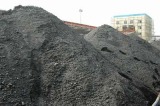Development and Reform Commission's Position Will Advance Electricity Pricing Reform
 The National Development and Reform Commission (NDRC) has recently emphasized the importance of accelerating electricity pricing reform, highlighting a strategic shift towards market-driven mechanisms. According to officials, the core of this reform is to seize the current favorable opportunity, eliminate key coal contracts, and implement a more flexible coal-electricity price linkage system. This move aims to gradually rationalize the relationship between coal and power, ensuring that market forces play a greater role in determining prices.
The NDRC official noted that since the beginning of the year, the coal supply and demand situation has shown signs of easing. The gap between key contract coal prices and market prices has significantly narrowed, with some regions even experiencing a reversal. As a result, power companies have seen improved financial conditions, and the timing for implementing coal price reforms has become more favorable. The commission stressed the need to take full advantage of this moment and push forward with the reform without hesitation.
In response to recent measures to lift temporary price controls on coal used for power generation, the NDRC explained that in 2011, coal prices surged sharply, reaching as high as 850 yuan per ton for 5,500 kcal thermal coal in the Bohai Rim region. To prevent excessive price increases and maintain stability, the government had introduced temporary price interventions under the "Price Law." Now, with coal supply stabilizing and prices dropping to around 635 yuan per ton, these temporary measures have been lifted. However, the guidance issued by the commission clearly states that if thermal coal prices fluctuate abnormally in the future, the government will be ready to intervene again using the same legal framework.
The new "Guiding Opinions" also outline several key steps to enhance the connection between coal production and transportation. First, coal transportation contracts will no longer distinguish between key and non-key categories, promoting fair competition among companies. Second, the dual-track pricing system has been abolished, and all coal will now be subject to market rules. Third, the government will stop issuing annual frameworks for inter-provincial railway capacity allocation, reducing administrative intervention and reinforcing the market’s central role. Finally, transport capacity contracts will be registered with the NDRC, the Ministry of Railways, and the Ministry of Transport for oversight, ensuring transparency and better governance.
This comprehensive approach reflects the government’s commitment to creating a more efficient, transparent, and market-oriented energy sector, while maintaining a balanced regulatory framework to protect both consumers and producers.
The National Development and Reform Commission (NDRC) has recently emphasized the importance of accelerating electricity pricing reform, highlighting a strategic shift towards market-driven mechanisms. According to officials, the core of this reform is to seize the current favorable opportunity, eliminate key coal contracts, and implement a more flexible coal-electricity price linkage system. This move aims to gradually rationalize the relationship between coal and power, ensuring that market forces play a greater role in determining prices.
The NDRC official noted that since the beginning of the year, the coal supply and demand situation has shown signs of easing. The gap between key contract coal prices and market prices has significantly narrowed, with some regions even experiencing a reversal. As a result, power companies have seen improved financial conditions, and the timing for implementing coal price reforms has become more favorable. The commission stressed the need to take full advantage of this moment and push forward with the reform without hesitation.
In response to recent measures to lift temporary price controls on coal used for power generation, the NDRC explained that in 2011, coal prices surged sharply, reaching as high as 850 yuan per ton for 5,500 kcal thermal coal in the Bohai Rim region. To prevent excessive price increases and maintain stability, the government had introduced temporary price interventions under the "Price Law." Now, with coal supply stabilizing and prices dropping to around 635 yuan per ton, these temporary measures have been lifted. However, the guidance issued by the commission clearly states that if thermal coal prices fluctuate abnormally in the future, the government will be ready to intervene again using the same legal framework.
The new "Guiding Opinions" also outline several key steps to enhance the connection between coal production and transportation. First, coal transportation contracts will no longer distinguish between key and non-key categories, promoting fair competition among companies. Second, the dual-track pricing system has been abolished, and all coal will now be subject to market rules. Third, the government will stop issuing annual frameworks for inter-provincial railway capacity allocation, reducing administrative intervention and reinforcing the market’s central role. Finally, transport capacity contracts will be registered with the NDRC, the Ministry of Railways, and the Ministry of Transport for oversight, ensuring transparency and better governance.
This comprehensive approach reflects the government’s commitment to creating a more efficient, transparent, and market-oriented energy sector, while maintaining a balanced regulatory framework to protect both consumers and producers.Polishing Wax/polish compound/polish paste belongs to chemical products and commodities, but in fact it is made by physical mixing and heating. Polishing wax also produces grinding, smoothing, smooth, and bright effects through physical movement during use, thereby playing the role of polishing and polishing. Polishing wax has a wide range of uses. It not only refers to the polishing and polishing of metals, but also the polishing of resins PU,PA, plastics, as well as hardwood furniture and appliances.
Polishing is divided into rough polishing, medium polishing, fine polishing and mirror polishing.For metal utensils and utensils of different materials, it is necessary to choose a suitable polishing wax to play a real role and an ideal effect.
Polishing Compound,Buffing Compound,Metal polish,Rubbing Compound
Jiangmen Gude Polishing Equipment Co., Ltd , https://www.kokipolishing.com
